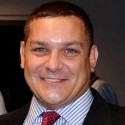Fred Wellman
June 2019
My Transition From the Military
I spent 22 total years in the Army after graduating from the United States Military Academy in 1987 and a break in the Army Reserves from 2000–2001. I graduated from the Harvard Kennedy School of Government in 2007 with a Masters of Public Administration. I was commissioned originally as an Army aviator and trained to fly helicopters before transitioning to the public affairs career field in 2004. In PA I served as the public affairs officer for the 101st Airborne Division, Multinational Security Transition Command–Iraq twice, operations officer for the Soldiers Media Center, and deputy commander for the Defense Media Activity–Army. I had left the Army after 13 years of service in 2000 and learned a number of lessons about transition from that experience before voluntarily returning to the regular Army after 9/11.
Upon returning from my third Iraq tour in late 2008, I decided to retire within the next year. I knew I wanted to take my time and methodically make the transition. After exploring my options, I decided to focus on moving into the public relations agency sector instead of the corporate or government sector based on my personality and skills. I felt like the agency world offered me the fast pace, variety of opportunities and pay scale I wanted.
My first move was to focus on building my personal brand and networking in the D.C. area. I joined Twitter and began attending tweetups, networking events and interacting online with influencers in the region. My blog had been focused on military issues so I began focusing instead on public relations issues, including a very well-received post on why the infamous “balloon boy” story became so viral.
Next, I researched the attributes of a major public relations agency executive, and updated my LinkedIn profile and tailored it to display my unique experiences and breadth of experience to reflect those skills. I began seeking out mentors in the industry in my personal and LinkedIn network to find opportunities and learn the lingo of the sector. In addition, I searched out the top recruiter in D.C. for defense public relations and sought the opportunity to be one of his candidates.
Having left the military once before, I found the Transition Assistance classes not terribly useful. I already knew how to wear a suit and write a resume, and by the time I started taking the classes I was already deep into my job search. The classes are very good for those who haven’t had my experience, however.
Finally, as the date firmed up on my retirement, I went very direct in my search. I let my entire network know I was retiring and specifically what I was looking to do. I specifically selected a set of firms I wanted to work at and ignored whether or not they had jobs posted. Instead, I sought out meetings with decision makers, recruiters or others who might break my resume out of the pile of others. This got me interviews at three or four of the top agencies in town.
In the end, I was deep into the interview process with one of the largest agencies in the country and a colleague who had heard I was retiring referred the CEO of a small firm to me, where I eventually settled.
Some of the key lessons from my transition:
- Begin early building your “brand” — early and strategically.
- Learn as much as possible about the industry you intend to join. Speak the language, frame your experience and know what they are looking for from the start.
- Network, network, network.
- Target your search to specific companies you wish to join, if at all possible.
- Don’t be shy about finding resources, asking for help and letting people know you are looking for a job.
- Did I mention networking?
- Be realistic about your capabilities. Public relations agencies have 25-year-old account executives that do media relations. A 45-year-old media relations expert is not a selling point. A strategic planner with 15 years’ experience
- building and executing media relations, social media and coordinated communications campaigns is a selling point.
- Be focused and relentless. Getting a job should be your job.


